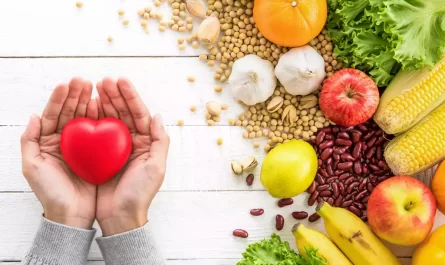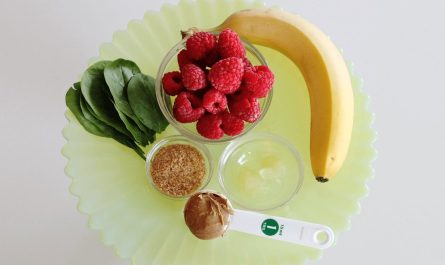Nutrition is about eating a healthy and balanced diet so your body gets the nutrients that it needs. When you’re pregnant, nutrition is more important than ever. You need more of many important nutrients than you did before pregnancy. Making healthy food choices every day will help you give your baby what he or she needs to develop. It will also help make sure that you and your baby gain the proper amount of weight.
The popular saying is that pregnant women “eat for two,” but now we know that it’s dangerous to eat twice your usual amount of food during pregnancy. Instead of “eating for two,” think of it as eating twice as healthy.
During pregnancy you need to increase in your diet:
- folic acid,
- iron, calcium,
- vitamin D,
- choline,
- omega-3 fatty acids,
- B vitamins,
- vitamin C.
Nutrients
Micronutrients are dietary components, such as vitamins and minerals, that are only required in relatively small amounts.
Macronutrients are nutrients that provide calories, or energy. We’re talking carbohydrates, proteins, and fats. You’ll need to eat more of each type of nutrient during pregnancy.
Calories– During the first trimester with one foetus, usually no extra calories are needed. In the second trimester, you will need an extra 340 calories per day, and in the third trimester, about 450 extra calories a day. To get the extra calories during the day, have healthy snacks on hand, such as nuts, yogurt, and fresh fruit.
Protein–
It’s important to get enough protein throughout your pregnancy, but it’s especially critical during the second and third trimesters. That’s when your baby is growing the fastest, and your body is growing substantially to accommodate your baby. The average non-pregnant female has a daily protein requirement of 0.8 gram per kilogram. If you become pregnant, your protein requirement will begin to increase and by the third trimester, you will require 1.1 grams per kilogram. So if you weighed 140 pounds before you became pregnant, your baseline daily protein requirement is about 51 grams. By the time you are in your third trimester, your daily protein intake should increase to 70 grams.
Fat:During pregnancy your body needs more fat. Roughly 25 percent to 35 percent of your daily calories should come from fat, depending on your carbohydrate goals. Eating monounsaturated fat is preferred over saturated varieties.
Carbohydrate:
The recommended daily allowance, or RDA, of carbohydrates during pregnancy is about 175-265 grams per day to fuel fetal brain development. Some women experience gestational diabetes, or diabetes during pregnancy, which may require them to limit their carbohydrate intake to 40 percent to 50 percent of their daily calories.
Calcium
Helps to build strong bones and teeth. Main sources include milk, cheese, yogurt, and sardines. During pregnancy you need 1,000 milligrams (mg) daily.
Iron
Helps red blood cells deliver oxygen to your baby. Sources include lean red meat, dried beans, peas, and iron-fortified cereals. During pregnancy you need 27 mg daily.
Vitamin A
You need this vitamin for healthy skin, eyesight, and bone growth. Carrots, dark, leafy greens, and sweet potatoes are good sources. During pregnancy you need 770 micrograms daily.
Vitamin C
Promotes healthy gums, teeth, and bones, and helps your body absorb iron. Good sources include citrus fruit, broccoli, tomatoes, and strawberries. During pregnancy you need 85 mg daily.
Vitamin D
Aids your body in the absorption of calcium to help build your baby’s bones and teeth. Sources include exposure to sunlight, fortified milk, and fatty fish, such as salmon. During pregnancy you need 600 international units (IUs) daily.
Vitamin B6
Helps form red blood cells and helps your body use protein, fat, and carbohydrates. You can find vitamin B6 in beef, liver, pork, whole-grain cereals, and bananas. During pregnancy you need 1.9 mg daily.
Vitamin B12
Helps form red blood cells and maintains your nervous system. You can find this vitamin only in animal products. Good sources include liver, meat, fish, poultry, and milk. During pregnancy you need 2.6 micrograms daily.
Folate (Folic Acid)
A B vitamin important in the production of blood and protein, it also reduces the risk of neural tube defects (a birth defect of the brain and spinal cord). You can find folate in green, leafy vegetables, liver, orange juice, legumes (beans, peas, lentils), and nuts.
You must get at least 400 micrograms of folate daily before pregnancy and during the first 12 weeks of pregnancy to reduce the risk of neural tube defects. During pregnancy, doctors recommend you get 600 micrograms daily.
Elevate your well-being at DfabU: Nourish your body, lose weight, and thrive with Dietician Deepak Khera. Start your healthy transformation today – call 83602 57379!


